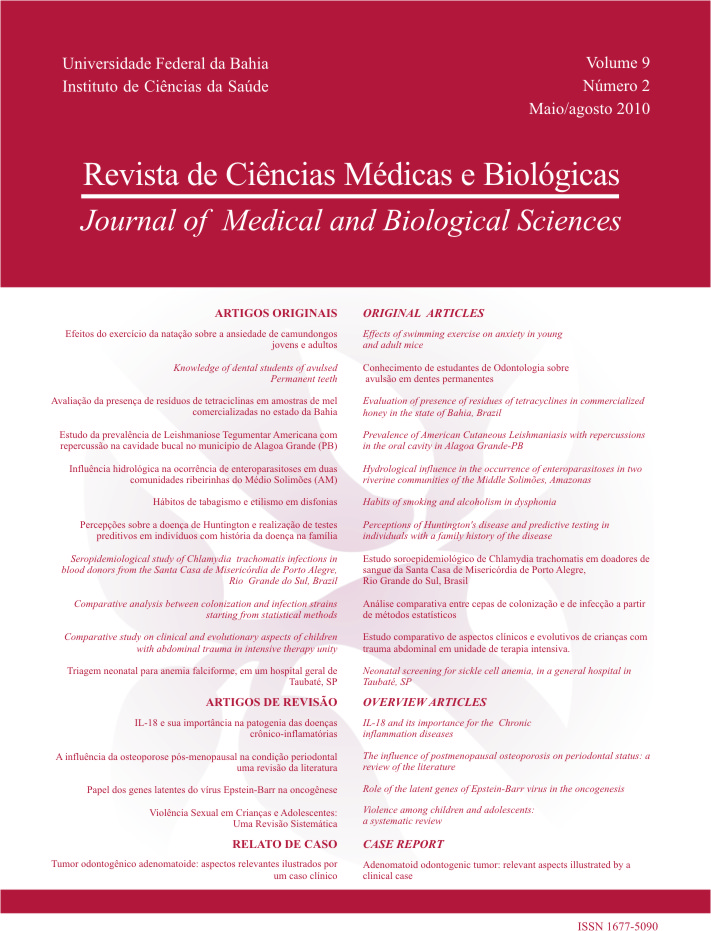Comparative study on clinical and evolutionary aspects of children with abdominal trauma in intensive therapy unity
DOI:
https://doi.org/10.9771/cmbio.v9i2.4948Palavras-chave:
Abdominal trauma – children – intensive therapy care, children – Abdominal trauma – liver and spleen lesions.Resumo
Abdominal trauma by accidents may induce life risk, because of the bleeding of solid organs or the development of sepsis due to perforation of empty viscera. Spleen and liver lesions in children are more frequent. The aim was to describe the epidemiological and clinical characteristics of children with abdominal trauma. A retrospective study was conducted in a general hospital in Salvador, Bahia, Brazil. This retrospective profile study with collected data describes the epidemiological and clinical characteristics of children with serious abdominal trauma, admitted in one Pediatric Intensive Care Unit (PICU) during 5 years and it compares the results with those of other patients with trauma without abdominal lesion. During this period 29 children were admitted with abdominal trauma; 125 children had trauma without abdominal lesion and represented the group in comparison. Abdominal trauma was more frequent in boys (p = 0.01) with an average age of 8.7 years. The main cause of abdominal trauma was car accident. The most affected organs were: spleen (51.7%) and liver (24.1%). Children with abdominal lesion presented more paleness (p = 0.002) and tachycardia (p = 0.007). At the PICU, hemodynamic, hematological and electrolytic dysfunctions were more common for childre.
Downloads
Downloads
Publicado
Como Citar
Edição
Seção
Licença
A Revista de Ciências Médicas e Biológicas reserva-se todos os direitos autorais dos trabalhos publicados, inclusive de tradução, permitindo, entretanto, a sua posterior reprodução como transcrição, com a devida citação de fonte. O periódico tem acesso livre e gratuito.






